In the game of modern medicine and malignant tumors, in addition to traditional surgery, radiation, chemotherapy and neoadjuvant treatment, cryotherapy, which takes advantage of the difference in temperature tolerance between tumors and normal tissues, is also an important anti-cancer method. In recent years, cryoablation of tumors has become a new research hotspot.
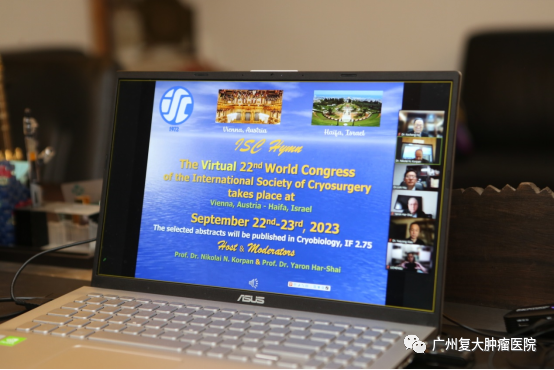
At this conference, Council of the International Society of Cryosurgery (lSC) successfully completed the election. Representatives at the meeting voted to elect the new president and council members. Among them, Niu Lizhi, President of Guangzhou Fuda Cancer Hospital was elected as the 23rd President of ISC, and Xu Kecheng, President General of Guangzhou Fuda Cancer Hospital continued to be the Honorary President of ISC.
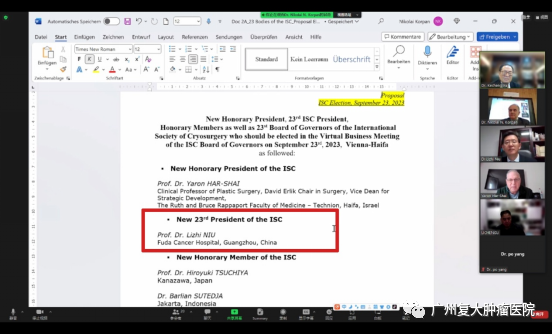
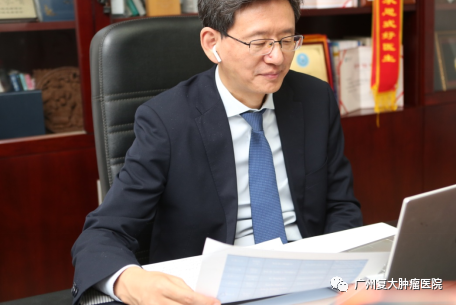
The application of cryosurgery in tumor treatment was pioneered in the United States in the late 1960s. In order to better promote this new technology, the International Society of Cryosurgery (ISC) was established in Austria in 1972. After over 50 years of development, this technology has become increasingly mature and has become one of the methods for treating tumors. Especially in recent years, with the development of economy and advancement of science and technology, China has taken a leading position in the world in both theoretical research and clinical application of cryosurgery. As an effective medical method to treat tumors, this technology has been increasingly and widely used by the Chinese medical community and has achieved remarkable results.
President Niu Lizhi has taken a unique place in the minimally invasive treatment of solid tumors such as pancreatic cancer, liver cancer, lung cancer, and kidney cancer. He has led the cryosurgery team to complete multiple cases (more than 10,000 cases) of complex minimally invasive cryosurgery. The patients range from 4-year-old child to 94-year-old elder, from foreign health ministers, celebrities to ordinary people, and all have achieved satisfactory results, providing a large number of references for clinical practice of minimally invasive tumor ablation with argon-helium knife. President Niu co-edited and published "Cryosurgery for Cancer" (Chinese and English versions) with President General Xu Kecheng, filling the gap in the field of minimally invasive tumor treatment. He has successively won the "Award for Excellence in Cryosurgery" from ISC, the "Outstanding Contribution Award" from the World Conference Interventional Oncology, and the "Outstanding Contribution Award" from the Chinese Academic Conference on Minimally Invasive Therapy in Oncology.
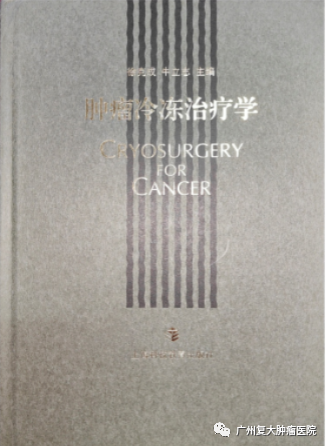
Being elected as the 23rd President of ISC, President Niu Lizhi said: "It is both an honor and a responsibility. The development of ISC and cryosurgery represents the hard work, assiduous studies and dedication of countless predecessors and colleagues." Hopefully, cryosurgery experts from all over the world will unite more closely, strengthen exchanges and cooperation, firmly integrate clinical practice with scientific researches, and work together to further promote the research and application of this technology and benefit more patients around the world.
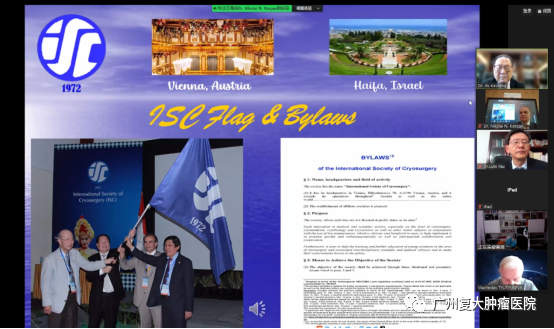
As the 18th President of ISC and its present Honorary President, President General Xu Kecheng commented on the candidates before the election, particularly introducing President Niu Lizhi’s contribution to cryosurgery (minimally invasive cryoablation particularly) in China, and his role in the development of cryomedicine in the world.